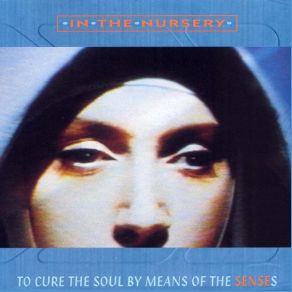Sense
Download links and information about Sense by In The Nursery. This album was released in 1991 and it belongs to Electronica, Rock, Alternative genres. It contains 14 tracks with total duration of 54:08 minutes.

|
|
|---|---|
| Artist: | In The Nursery |
| Release date: | 1991 |
| Genre: | Electronica, Rock, Alternative |
| Tracks: | 14 |
| Duration: | 54:08 |
| Buy it NOW at: | |
| Buy on iTunes $9.99 | |
| Buy on Amazon $6.99 | |
Tracks
[Edit]| No. | Title | Length |
|---|---|---|
| 1. | Blue Religion | 4:26 |
| 2. | A Rebours | 4:13 |
| 3. | Boy Behind the Curtain | 4:18 |
| 4. | Temporis | 4:24 |
| 5. | Syntonic | 4:01 |
| 6. | Sense | 4:14 |
| 7. | Epigraph | 4:06 |
| 8. | Memoirs | 1:42 |
| 9. | Angelchrome | 5:04 |
| 10. | Sinistral | 3:04 |
| 11. | Sense Datum | 3:18 |
| 12. | Contre-Coeur | 3:18 |
| 13. | Blue Religion (No Confession Mix) | 5:07 |
| 14. | Solitude | 2:53 |
Details
[Edit]In the same way Koda built upon Stormhorse, Sense very much leads on from Esprit; having achieved a striking new mastery with their ability to create lush, detailed neo-classical electronic compositions on the previous record, Nigel and Klive Humberstone here consolidated their gains with an accomplished if not quite as grand album. Accompanied as always by drummer Q and vocalist Dolores C. Marguerite, along with a guest narrator on "Epigraph," ITN's apparent goal with Sense, to quote the album art as well as the album's title track, is "to cure the soul by the means of the senses and the senses by means of the soul" — perhaps an overly ambitious brief, but one which the brothers grapple with in their by-now-unique way. One of the notable developments is an increasing percussive elaborateness — the opening two tracks, "Blue Religion" and "A Rebours," both exhibit more detailed work than before, whether it's the echo drum rolls backing up Q's snare drum work on the former, or the almost-vibe-like pattern anchoring the latter. Most interesting in light of Nigel and Klive Humberstone's eventual dance side project, Les Jumeaux would have to be "Temporis," where a low-key but definite techno pulse helps drive the number along, as well as the similarly propulsive "Angelchrome." Another continuing theme from Esprit, with the focus on piano-led pieces as opposed to orchestral, appears most notably here with "Syntonic," which before a sudden increase in general instrumentation at the end consists mostly of piano accompanied by woodwind. In all, Sense is duly tasteful and quite fine to listen to, to be sure, but there is nonetheless something a little lacking here; not as much in the way of absolutely gripping musical rapture as Esprit accomplished.